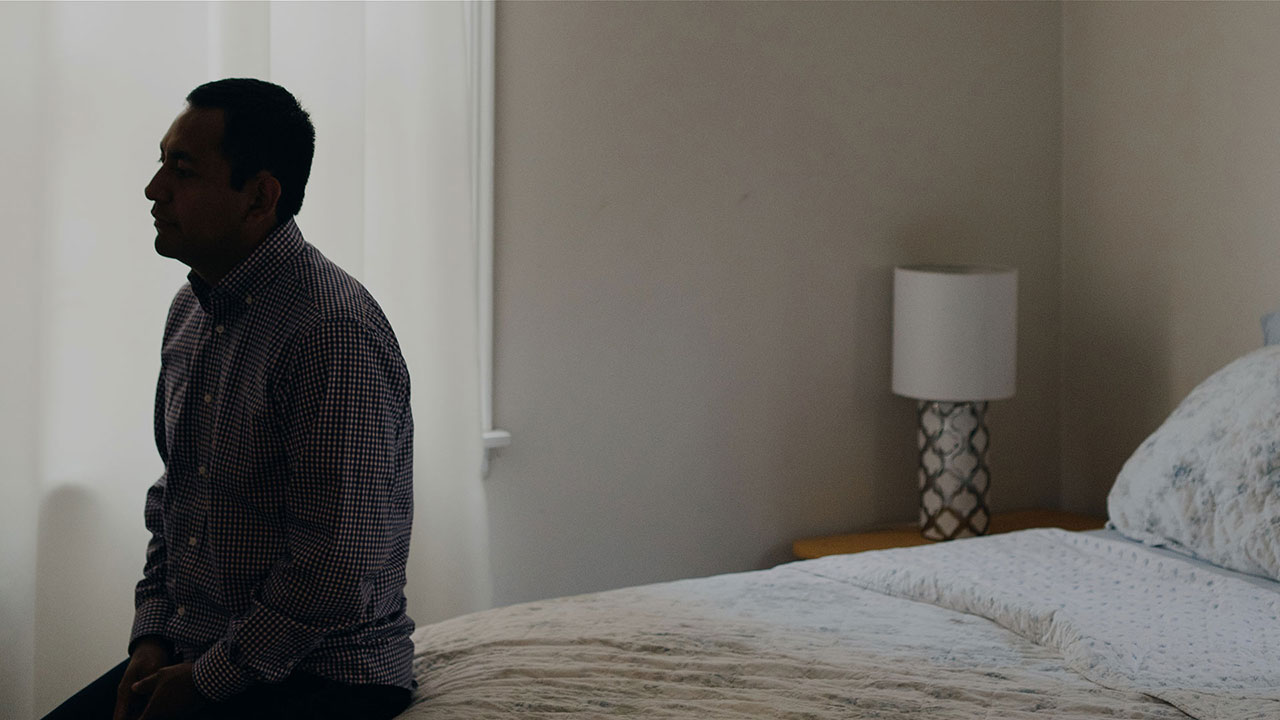“Nostalgia is a natural side effect of immigration. Immigrants leave their home in search of a better life, and with that comes a lot of difficulty. There’s always going to be this tendency to look backwards and reminisce about how things were.”
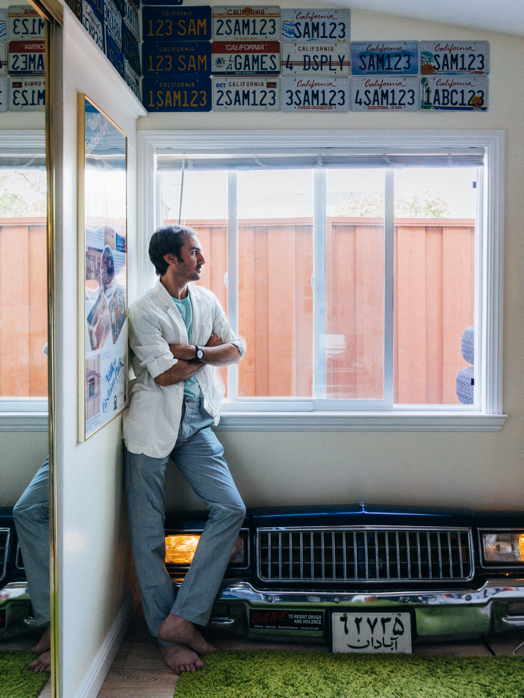
No one should be defined by their interests, but sometimes a person’s passions can help you get to know them better. Shervin, from San Jose, is a writer, photo editor, and a Lyft driver. He’s also an ’80s enthusiast. But his interest in the decade—the American version of it—has a lot to do with the fact that he simply missed out on the whole thing.
Shervin was born in 1992 (“I used to really hate that I wasn’t born in ’89, to say I technically was around for the ’80s,” he says), and his parents brought him to the United States in 1998. The whole family missed out on the American ’80s—and the ’80s in Iran were nothing like it.
For Iranians like Shervin’s parents, who had experienced a freer, more liberal Iran in the 1970s, the ’80s, were a restrictive, fearful time marked by the rise of the Islamic Revolution. Shervin notes: “When you bring up the ’80s to somebody from Iran, they are probably not going to have great memories. But when you bring up the ’80s with somebody in the US, they’ll go on and on about how great it was.”
01.
Shervin's love of cars aligns with his love for the '80s.
02.
Shervin's bedroom is period-specific, featuring '80s memorabilia he has collected over the years.
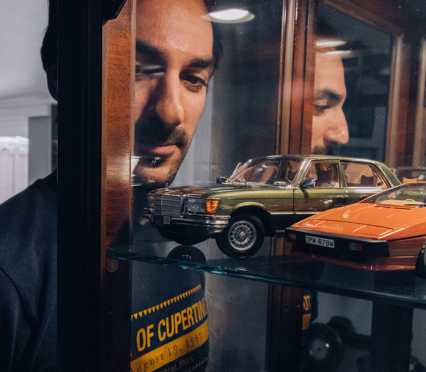 01.
01.
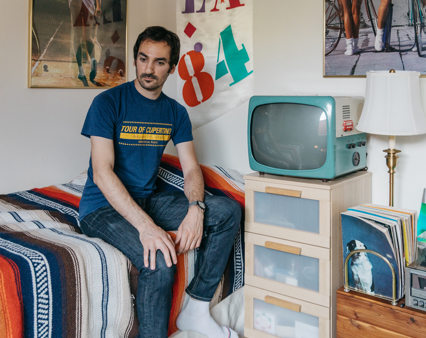 02.
02.
Shervin“It was like, ‘What do you mean you haven’t seen Back to the Future? What do you mean you don’t know Depeche Mode?
Young Shervin began attending school in California, where he quickly realized he was in the dark about all things American ’80s—MTV, Miami Vice, and Members Only jackets. And his parents didn’t know about any of these cultural artefacts, either.
But the idea of looking back, of waxing nostalgic, already felt familiar. “Growing up, my parents were always reminiscing about the way things used to be. A time before things got difficult in Iran.”
01.
Shervin enjoys a very close bond with his parents.
02.
As Shervin describes, "Nostalgia is the way I was raised. And in a way, my parents are still looking to the past."
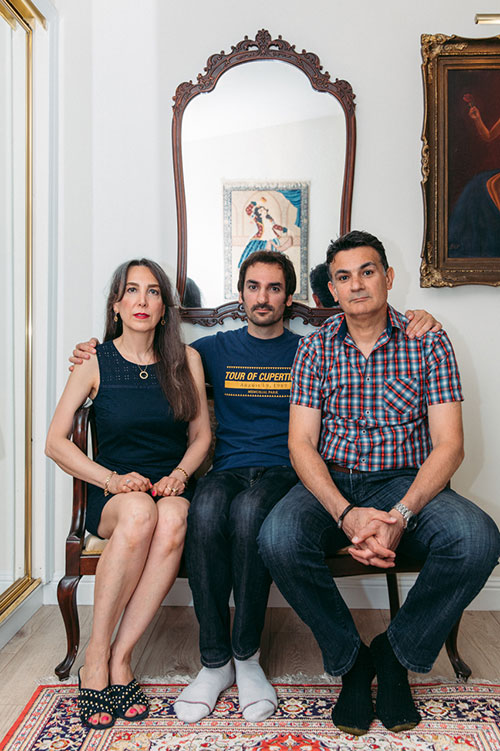 01.
01.
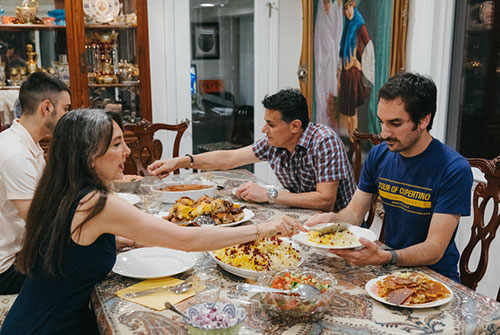 02.
02.
Shervin“My interests naturally gravitated towards this time that my parents hadn't experienced, this decade that they had been in the dark about. I was their window into what they missed.
For Shervin and his parents, “Home didn't really feel like a place. It felt like a time. I think it’s probably true for a lot of immigrants. They leave their home country in search of a better life. They’re never really able to recapture that magic that they had in their home country.” Adjustment and assimilation can be difficult everyday realities. It follows, then, that many immigrants who face the difficulty of adapting to life in a new country might enjoy casting their minds to a more settled time.
As Shervin’s interests in ’80s-era America grew, so did his interest in sharing those interests with his parents. At some point, the connection between his love for that decade and his family history clicked for him. “When I was in high school, somebody asked me, ‘Why are you so interested in the ’80s?’ It wasn’t until something like twenty-five years later [after we came to America] when I started to really connect the dots.”
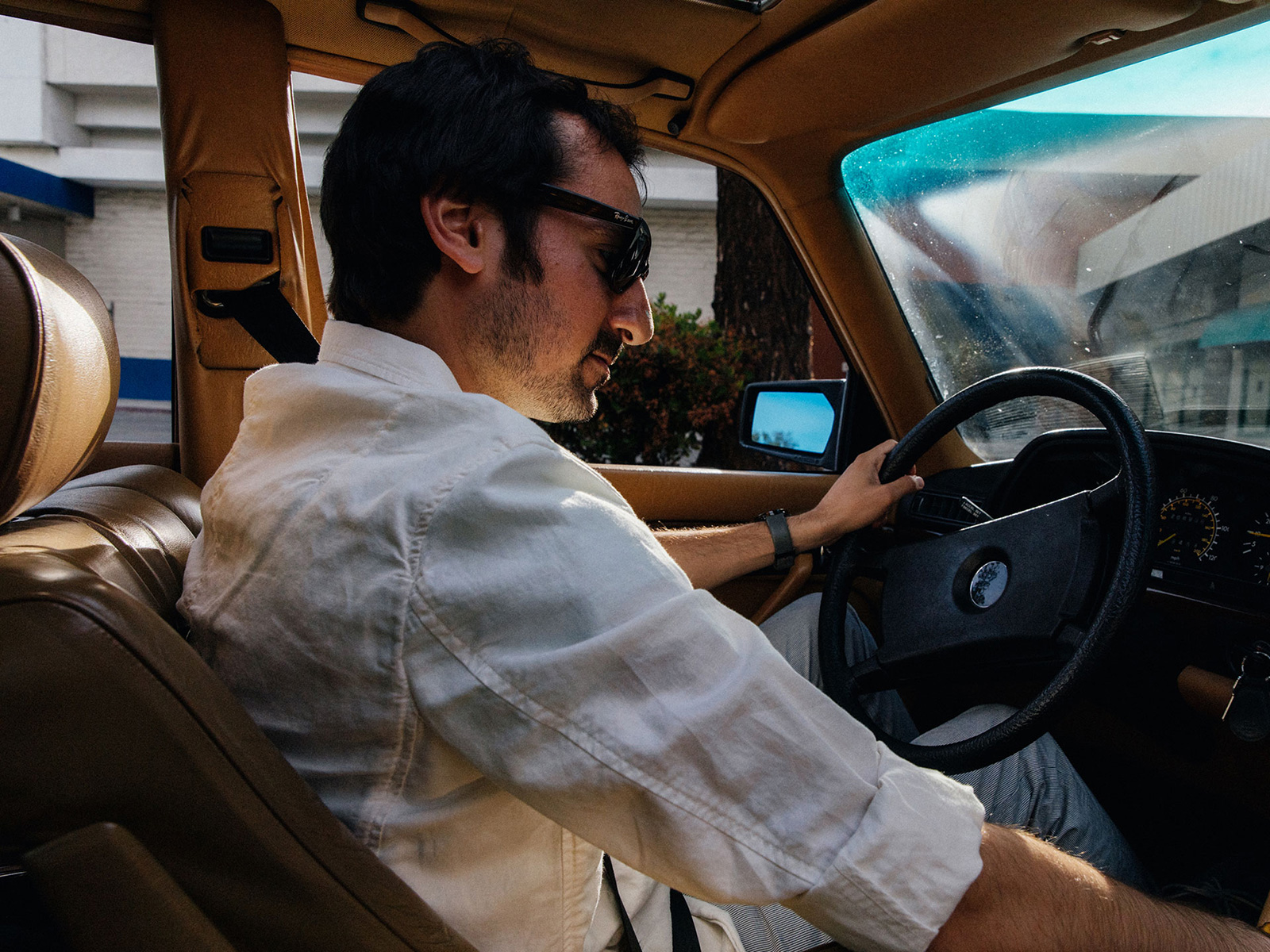
Shervin“But nostalgia can be bad for you too. When you are so attached to an era from the past, you don't allow yourself to live in the present.
Recently, though, Shervin has reckoned a bit with the intensity of his interest in the past. He’s dialing it back, even just a little—or at least living with an awareness he didn’t have before.
“A lot of people associate me with things from the ’80s, the classic cars. And for a long time, I had no problem with that. I sort of believed it too. I said, ‘Well yeah that's that's kind of who I am.’ That shapes everything about me. But nostalgia can be bad for you too. When you are so attached to an era from the past, you don’t allow yourself to live in the present, and I had no idea was really doing that to myself.”
Regardless of his own experience, Shervin believes there’s a lesson from this country’s past that should be heeded: “If you really start looking back, everyone is an immigrant in America. The only difference is we’re just new here. And I’m proud to be an immigrant. I’m proud to be Iranian-American.”
Every issue contributing to our current immigration crisis is interconnected. Your stories inspire us to continue to take a stand — when our community of riders and drivers is threatened, we’re encouraged to take action.
In honor of Shervin and his family, we are humbled to support Pars Equality Center — a social and legal services organization dedicated to helping the Iranian-American and other Persian-speaking communities realize their full potential as informed, self-reliant, and responsible members of the American society.
Please join us in supporting them.




